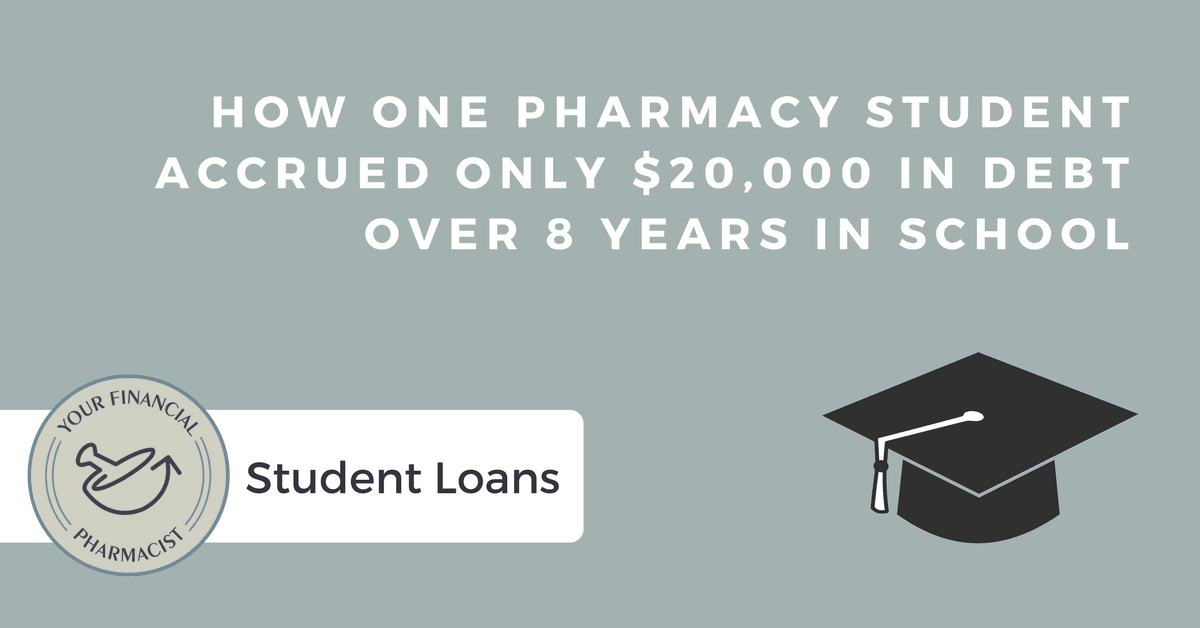By Tim Ulbrich, PharmD
YFP Founder and Co-Author, Seven Figure Pharmacist
The following post is from an interview I conducted with Kristopher Gillespie, BSPS, regarding how his involvement in the Army will result in graduating from pharmacy school in 2018 with very little student loan debt! Kris is a PharmD Candidate (Class of 2018, University of Toledo College of Pharmacy & Pharmaceutical Sciences.
Question: Kris, tell us a little bit about yourself and your military service leading up to attending pharmacy school.
Answer: I am currently 28 years old, married with 2 children, both boys, and in my last year of pharmacy school. I graduated high school in 2006 and decided to join the Army right after high school. I joined the Army as a 68Q or a pharmacy technician. After completing basic training, I went to Fort Sam Houston, Texas to complete my Advanced Individual Training (AIT) school, aka pharmacy tech training. After completion I was stationed at Fort Bragg, North Carolina where I worked in a hospital on base in the inpatient, outpatient, and a compounding/supply pharmacy over a period of about 4 years. I completed 5 years of active duty and then another 1 ½ years in the Army Reserve. I was never deployed so all my training and experience came from the hospital I worked at.
Question: Kris, you are on the path to do what very few pharmacy students have been able to do…accrue a VERY LITTLE amount of student debt. How were you able to do this?
Answer: One of the best benefits in my opinion of being an active duty soldier is that you can take 1-2 classes per semester from a distance learning center or main campus (if one is close enough) and the Army pays the tuition. All you have to do is buy the books. I finished 31 credit hours of classes while on active duty usually taking 2 classes at a time. My AIT and Army experience gave me another 31 elective credits. After I finished my 6.5 years in the Army I decided to go to school full time. The Army GI bill pays for 4 years of school so I had to complete and pay for 1½ years of undergraduate (since this was the cheapest tuition) and then I could use this benefit for the 4 years of pharmacy school. So I actually have just over $20,000 in student loan debt after going to school for around 8 years.
Question: While you were serving in the Army right out of high school, when did you realize you wanted to go to pharmacy school and how did you make that switch?
Answer: I was about 4 years into active duty working in my hospital outpatient pharmacy and I realized that there was only so much I could do as a pharmacy technician. I wanted to be able to answer the patients questions but couldn’t due to lack of knowledge or federal law prohibiting me (as the technician) from counseling. This thirst for knowledge was my primary motivation for wanting to go to pharmacy school. Since the Army does not have a pharmacy school program, you have to finish your time that you signed up for and get out of the Army before going to school full time. I ended up signing up for the Army reserve as my wife was in college at the time and that was how much longer she had left to get her bachelor’s degree. We essentially swapped roles, which for us worked out well.
Question: What are the requirements from the Army in terms of active duty to get professional school tuition paid for? What requirements do you have to fulfill after graduating from pharmacy school and for how long?
Answer: As an active duty soldier, all you really need is your chain of commands approval to start taking classes. This means not getting into trouble, show up when and where you are supposed to, and just doing what you are told. In my experience, it was not hard to get enrolled in classes; it was just learning time management and learning that the program existed! I still had to work 8-10 hours a day five days a week at the hospital and then I went to evening classes 2-3 times a week. The Army has a program called GoArmyED which has a website for soldiers to use to find schools that partner with them. Through their website you enroll into classes and they pay for the tuition. Since I had to get out of the Army before I could go to school full time, I actually no longer have a commitment to the Army after graduation.
Question: While you made the decision right after high school to join the Army, I’m assuming some pharmacy students reading this are considering this option while in pharmacy school. Is it too late? How about those that already graduated? Do they still have the option to go into military service and be eligible for loan forgiveness?
Answer: It is never too late, but I have to stress that it is definitely not for everyone. It takes some resilience and a strong motivating quality to make it through whatever commitment you sign up for. If you have already started pharmacy school I would suggest finishing pharmacy school and enlisting after graduation and taking advantage of the loan forgiveness programs. These amounts are always changing based on the amount of pharmacists the Army needs at the time. Remember that the contracts are a negotiation and if you do not like what they are offering you can walk away. For example, I was originally told that they only had 7-year contracts for pharmacy technicians. I told them that I was not prepared to sign up for 7 years of active duty and that I wanted a lower number. After talking to his manager and looking at my ASVAB score (test taken prior to enlistment kind of like an ACT or SAT) he got my contract lowered to 5 years of active duty. As a pharmacist, you bring a lot to the table so get what works best for you.
Now while in college, it might be best to look into ROTC (Reserve Officers’ Training Corps). You can get scholarships based on an agreed upon contract and most importantly it gives you a preview of the Army. You do different training exercises, attend different events, work out and take the Army physical fitness test, etc. Now, with the ROTC program they will help pay for school but there will be in the contract how long you have to serve on active duty post-graduation. The nice part with being a pharmacist is that you jump straight to captain (O-3) after finishing OTS (officer training school, this is like basic training but for officers). Now this means that you will be in a leadership position at your first duty station. So you will be in charge of an inpatient pharmacy, maybe a clinic, or wherever the Army has an opening for an active duty pharmacist. From my experience, active duty pharmacist got moved around every 2-3 years, either deployed or just to another duty station. Like I said, it’s not for everyone so just make sure you ask questions and know what you are getting into. Recruiters lie and typically do not know much about the medical side of the Army. My recruiter did not even know that the Army had pharmacy personnel. Make sure you talk to someone who “specializes” in recruiting pharmacist/medical personnel.
Question: Knowing most graduates are facing approximately $160,000 in student loans when coming out of school, what do you think graduating with only $20,000 (or so) of debt from pharmacy school will mean for you and your family going forward? Would you do it all over again?
Answer: For my family, this means that we are able to start saving more for retirement, and put more money into my sons’ 529 savings accounts for college. I believe that saving for the future is of vital importance, so the earlier I can start the better. I would absolutely go back and join the Army again. The experiences that I had made me more out going, gave me leadership qualities, and since I was smart with my money they set me up to be financially stable. Everyone in the pharmacy world says, “Find something to set yourself apart from the rest of your classmates”. My experiences in the Army have definitely given me plenty of ways to separate myself from my classmates.
Join the YFP Community!
Recent Posts
[pt_view id=”f651872qnv”]




